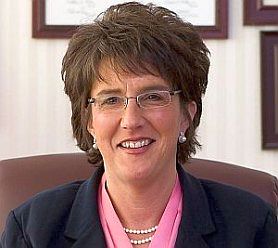 A bipartisan group of 149 members of Congress today called on Commerce Secretary Wilbur Ross not to put American jobs and economic growth at risk by imposing tariffs on automobiles and automotive parts.
A bipartisan group of 149 members of Congress today called on Commerce Secretary Wilbur Ross not to put American jobs and economic growth at risk by imposing tariffs on automobiles and automotive parts.
In a letter led by U.S. Reps. Jackie Walorski (R-Ind.), Terri Sewell (D-Ala.), Mike Kelly (R-Pa.), and Ron Kind (D-Wis.), the members highlighted the economic benefits of the auto industry and warned of negative consequences if the ongoing Section 232 national security investigation into imports of automobiles and automotive parts results in tariffs, quotas, or other restrictions.
“We support the Department of Commerce as it seeks a level playing field for our manufacturers and workers in the global marketplace and penalizes bad actors,” the members wrote. “We do not believe that imports of automobiles and automotive parts pose a national security threat. Rather, we believe the imposition of trade restrictions on these products could undermine our economic security.”
A signed copy of the letter is available here, and the full text is below.
Wednesday, July 17, 2018
The Honorable Wilbur Ross Secretary Department of Commerce 1401 Constitution Ave, NW Washington, DC 20230
Dear Secretary Ross:
We support your efforts to ensure a fair and level playing field with our trading partners, and we agree with you that the manufacturing base, particularly the automotive and automotive supplier industry, is important to the economic security of the United States. However, we are concerned that the recently announced Section 232 national security investigation into imports of automobiles and automotive parts could have a significant negative impact on the economic security of our country.
Our nation’s automotive industry is a critical driver of the American economy, historically contributing between 3.0-3.5% of our total GDP. It depends on a vast and complex network of suppliers to build vehicles, a large dealer network to sell them, and a substantial retail and aftermarket industry to supply repair and replacement parts – establishing facilities and creating jobs in every state. The industry has rebounded from the depths of the Great Recession, and in some parts of the industry, employment is actually higher than pre-recession levels. However, imposing tariffs, quotas, or other restrictions on automobiles and/or automotive parts threatens to undo that momentum.
We urge you to keep the following factors at the top of your mind as you conduct your investigation and develop recommendations:
· Quality, high-paying jobs are at stake in every state that span the industry: suppliers, dealers, and automakers; research and development, design, and manufacturing; installation and maintenance;
· Innovative, advanced technology work, including research and development and manufacturing of high-value, highly technical components, is conducted here in the U.S.;
· Close trading partners, many of which are our allies and valuable export markets for vehicles and parts manufactured in the U.S., are planning retaliation against our vulnerable industries;
· Suppliers, automakers, and dealers have planned considerable investments in innovation, expansion, workforce training, and job growth;
· The industry is facing price increases and supply challenges due to other trade actions;
· Price increases from tariffs, quotas, and other trade restrictions will ultimately be borne by American families in the form of higher vehicle prices, delayed purchases, and foregone vehicle maintenance, among others; and
· Unintended consequences will hurt other industries that rely on products that could be subject to trade restrictions, including used automobiles, heavy-duty vehicles, military vehicles, RVs, heavy machines and construction equipment, vintage and antique automobiles, and other vehicles.
We support the Department of Commerce as it seeks a level playing field for our manufacturers and workers in the global marketplace and penalizes bad actors. We believe, however, that the taxpayer dollars being used by the Commerce Department for this investigation would be better spent on other endeavors. We do not believe that imports of automobiles and automotive parts pose a national security threat. Rather, we believe the imposition of trade restrictions on these products could undermine our economic security.
Sincerely,
Walorski represents the 2nd Congressional District of Indiana, serving as a member of the House Ways and Means Committee.














